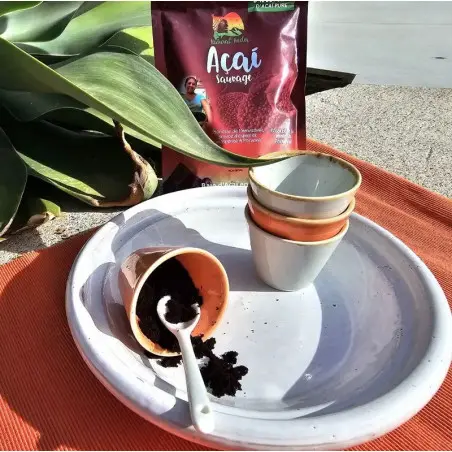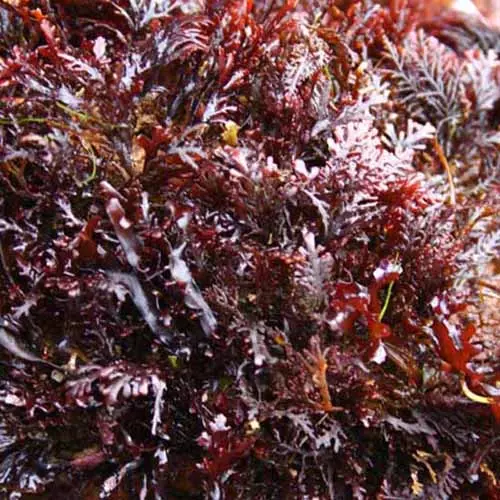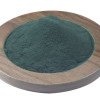In our quest for optimal health, the importance of gut flora emerges as a key component often underestimated. "Our gut is our second brain" is an expression that has become common today, whereas no one talked about it just a few decades ago. The balance within our intestines is essential not only for digestion but also for vital functions of our body. Understanding how it works can transform our approach to food and well-being.
Superfoods, on their part, have numerous nutritional benefits in a concentrated form. These foods, rich in nutrients and bioactive compounds, have the potential to interact positively with the environment of our intestines.
Introduction to the Gut Microbiota
The gut microbiota is at the crossroads of health and well-being, influencing essential aspects such as immunity and energy metabolism. Composed of billions of bacteria, its composition is dynamic and changes throughout life, also depending on our lifestyle, our diet, and our level of physical activity. An unhealthy diet, saturated with sugars, salt, and fats, can deplete this precious microbiota, leading to frequent digestive disorders. Fortunately, probiotics and certain superfoods can revitalize these good bacteria, thus contributing to the balance of the microbiota and the reduction of inflammation.
Definition of the Gut Microbiota
Also known as gut flora, the gut microbiota is a complex community of microorganisms including billions of bacteria, viruses, and other microorganisms present in the digestive tract. In adults, this microbiota can weigh up to 2 kg and house about 100 trillion microorganisms belonging to various species. A healthy microbiota is characterized by rich diversity, including beneficial bacteria such as Lactobacilli, which coexist with potentially harmful bacteria. The health of the gut microbiota is crucial for a strong immune system and bodily balance.
Role and Importance of the Microbiota for Health
The gut microbiota, much more than just a collection of microorganisms, plays a crucial role in many bodily functions. It actively participates in digestion and also influences the connections between the gut and the brain, a dialogue that could impact issues such as obesity, Alzheimer's disease, diabetes, and even depression. An imbalance of the microbiota, or dysbiosis, can lead to intestinal transit disorders, frequent infections, and overall degraded health. Lactobacillus, for example, are valuable allies, modulating the production of neurotransmitters such as serotonin, which directly influences mood, stress, and sleep quality. Thus, taking care of our microbiota is essential for our physical and mental well-being, hence the importance of a better diet for a healthy microbiota.
What is a Superfood?
Superfoods are 100% natural, unprocessed products, consumed raw to preserve their richness in essential nutrients. In France, these foods are mainly available during the summer, a period when they are particularly rich in fibers, minerals, and powerful antioxidants. They mainly include fruits, vegetables, and roots like turmeric and ginger.
Characteristics of Superfoods
Superfoods are distinguished by their high content of vitamins and fibers, thus helping to strengthen our protection against cancer and cardiovascular diseases. Rich in essential minerals, trace elements, phytonutrients, and antioxidants, they contribute to cellular protection against oxidative stress. Regular consumption of superfoods has positive effects on all organs, including the kidneys, the liver, the brain, the intestines, the heart, and the arteries. Adopting a diverse diet that includes these superfoods can significantly improve our overall health. Moreover, they also play a crucial role in weight management, making their inclusion in our daily diet essential for maintaining optimal health.
Why are these foods beneficial?
Superfoods are valuable allies for the intestinal environment and play a key role in maintaining our digestive health. For example, fruit kefir, a super-probiotic, enriches the microbiome with beneficial bacteria and yeasts, thus helping to reduce inflammation throughout the body. Additionally, soluble fibers in superfoods and fruits serve as food for probiotics, thus maintaining the intestinal flora in balance. Finally, polyphenols, present in red fruits like açaí and raw cacao, act as antioxidants, protecting your microbiome from damage caused by harmful bacteria.
By incorporating these superfoods into your diet, you provide your body with a real boost towards better health, strengthening your immune and cognitive functions, while protecting your immune cells and improving overall well-being.
Superfoods that nourish the microbiome
Microalgae: spirulina, chlorella, klamath
Spirulina, with its 50 to 70% protein content, is an exceptionally nutrient-dense superfood. It contains all essential amino acids and, like chlorella, is rich in chlorophyll. These microalgae are beneficial for the intestinal flora by helping to detoxify the liver and strengthen the immune system. Moreover, they promote a balanced microbiome by neutralizing pro-inflammatory bacteria. Incorporating spirulina and chlorella into your diet could be a key to better intestinal health. In addition to their benefits for the microbiome, spirulina and chlorella offer a multitude of other health benefits. For example, they are powerful sources of antioxidants, which help combat oxidative stress in the body. This is particularly important in a modern lifestyle, where exposure to pollutants and toxins is inevitable.
Klamath plays an essential role in the health of the intestinal microbiome. Its richness in omega-3 fatty acids, antioxidants, and polysaccharides promotes the development of beneficial bacteria. These components can improve microbiome diversity, creating a healthy and balanced intestinal environment.
Fresh Organic Quality Seaweed
The fresh seaweed we have been offering for over ten years on Biovie provides a rich source of proteins, antioxidants, fatty acids, including the valuable omega-3s, and essential minerals. Their high content of chlorophyll purifies the body and cleanses the intestinal flora, thus promoting a balanced microbiota. By incorporating fresh and organic seaweed into your diet, you not only improve your intestinal health but also support your immune and cardiovascular systems. In France, we are incredibly fortunate to easily find organic, raw, and fresh seaweed. Very few countries in the world have this opportunity, seize it!
Raw Cocoa
Raw cocoa in all its forms is much more than just a taste pleasure. Rich in flavonoids, powerful antioxidants, it promotes a healthy gut microbiota by neutralizing pro-inflammatory bacteria. Regular consumption of raw cocoa can also improve mood and support cardiovascular health.
Lacto-fermented Vegetables
Lacto-fermented vegetables are an incredible top choice for intestinal health. Of course, sauerkraut is well known, but today, Asian preparations like kimchi, achards, and pickles are worth exploring. The fermentation process enriches these vegetables with vitamins and minerals, increasing their nutritional value. Rich in prebiotics, they nourish the good bacteria in the gut microbiota. Regular consumption of these preparations, starting with raw organic Alsatian sauerkraut, can significantly improve your digestion and strengthen the microbiota.
By incorporating these superfoods into your dietary routine, even just 2 or 3 times a week in your meals or salads, you can not only improve your digestive health but also your overall well-being.
Good Practices for Maintaining a Healthy Microbiota
Dietary Habits to Adopt
Adopting a healthy and varied diet is essential for nourishing the intestinal flora. Here are some beneficial dietary habits:
- Rich in Fiber: Soluble fibers, found particularly in fruits and vegetables, promote the growth of good bacteria. Regular consumption is essential to maintain microbial balance.
- Superfoods and Probiotics: Products like lacto-fermented vegetables, kombuchas, and kefirs provide probiotic benefits and an anti-inflammatory boost.
- Limit Processed/Overcooked Foods: Ultra-processed foods can not only deplete your microbiota but also lead to digestive and psychological disorders.
Importance of Dietary Diversity
Dietary diversity is a pillar of gut microbiota health. An organic and diverse diet ensures a varied and robust intestinal flora.
- Inclusion of Fruits and Vegetables: Vegetable juices and berries, rich in vitamins and antioxidants, contribute to a diverse microbiota.
- Fermented Foods: Foods rich in lactic acid, such as lactic acid-rich foods, kefir, sauerkraut, or kimchi provide beneficial probiotics.
Dietary Supplements for the Microbiota
Treating Mucoid Plaque
The balance of the gut microbiota is crucial for preventing various digestive disorders and chronic diseases. Mucoid plaque, an accumulation of mucus on the surface of the intestinal mucosa, can be reduced by a healthy microbiota and the use of a mucoid plaque cleansing kit, as explained in our article on mucoid plaque. Lactobacillus, present in fermented foods, are essential for strengthening the intestinal barrier.
Furthermore, vegetables rich in inulin (Jerusalem artichoke, leek, asparagus, garlic, onion...) promote the development of beneficial bacteria such as Lactobacillus and bifidobacteria. Consuming these foods increases positive effects on our immune function while reducing the risks of heart disease and other cardiovascular disorders.
Probiotics and Raw Foods
Raw foods, especially sprouted seeds and raw vegetables, are essential for strengthening the gut microbiota with plant proteins that protect our intestinal flora.
Fresh fruits like apples, pears, kiwi, or papaya (from Spain!) are excellent sources of soluble fibers that nourish probiotics. These foods stimulate the intestinal flora, which is crucial for those suffering from irritable bowel syndrome. Additionally, red fruits and raw cocoa are rich in polyphenols, offering antioxidant effects that actively support microbiome health.
Recommendations for a balanced diet
Adopting a nutrient-rich and balanced diet is crucial for maintaining a healthy gut microbiome, essential for our overall well-being. Limiting saturated fats, trans fats, and refined sugars is a priority to avoid imbalances in the intestinal flora.
Recommendations for a balanced diet:
- Incorporate superfoods: Foods such as spirulina, pollen, and red fruits are rich in essential nutrients that support beneficial bacteria.
- Consume prebiotics: Soluble fibers found in the best foods like certain fruits and vegetables promote the growth of good bacteria, thus improving mood and cognitive functions.
- Avoid harmful excesses: Reducing saturated fats and refined sugars decreases oxidative stress and supports cardiovascular health.
By incorporating these recommendations into your diet, you give a boost to your microbiome, reducing the risks of chronic diseases and improving your mental and physical health.

























